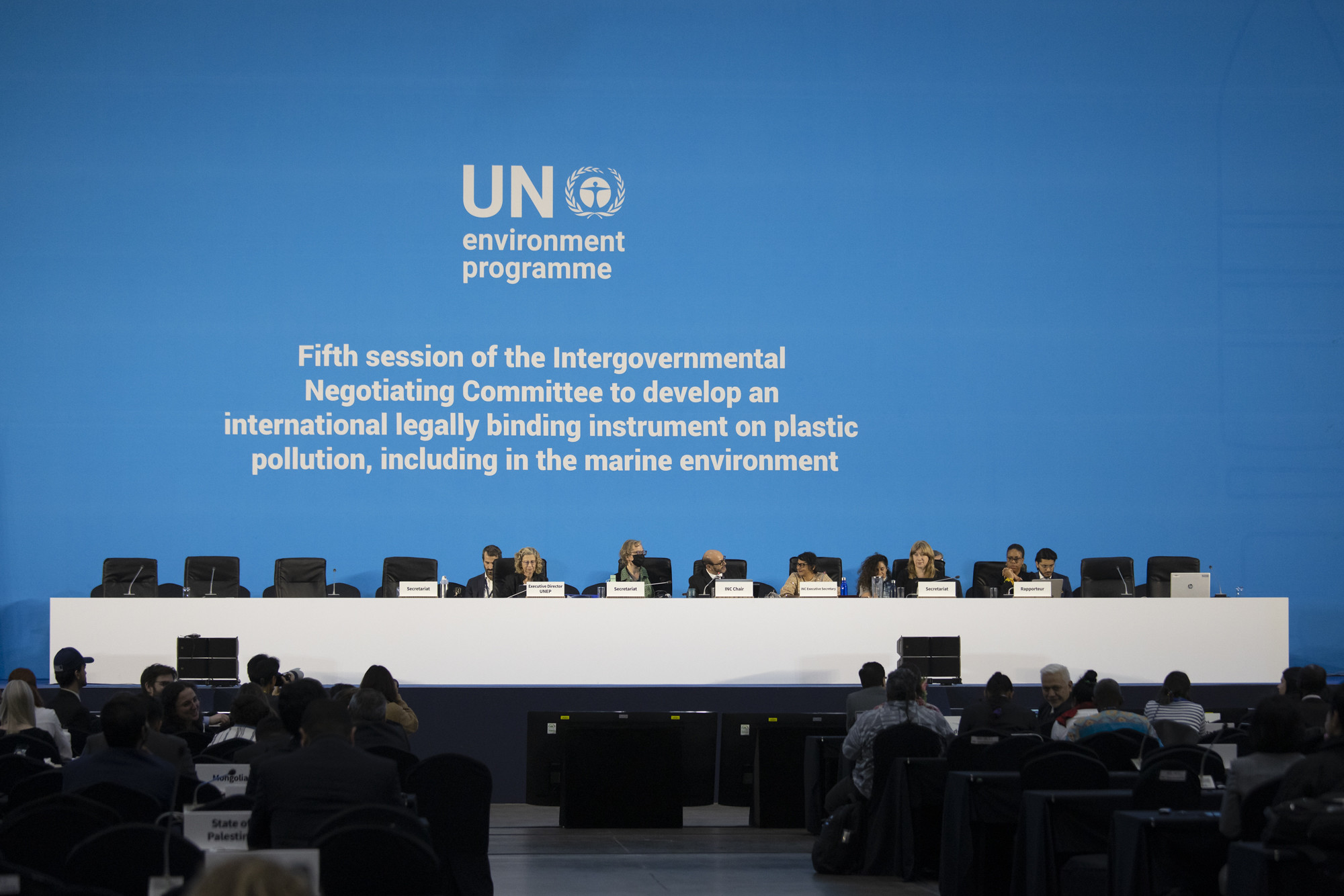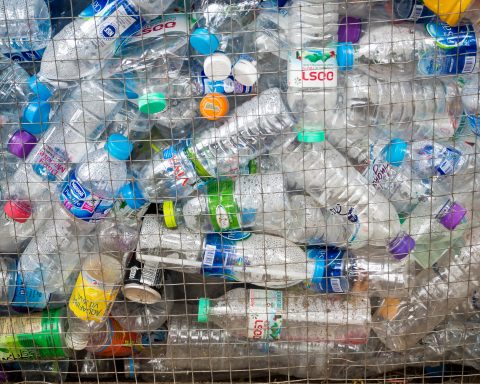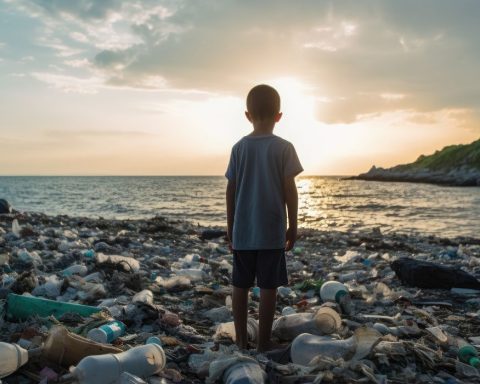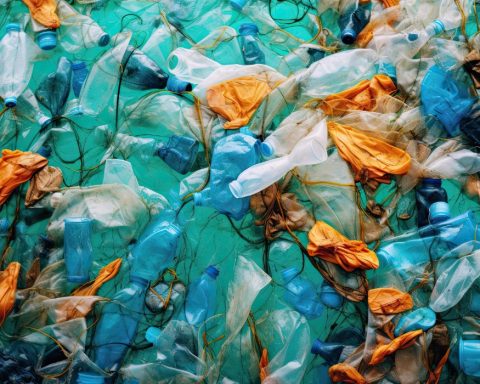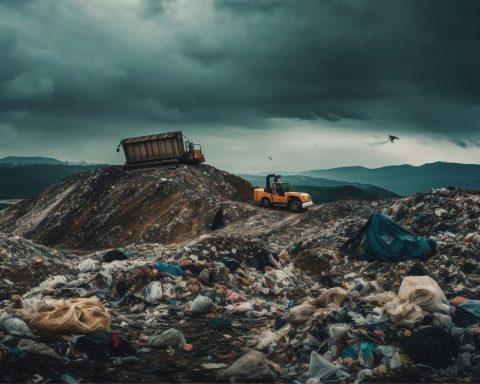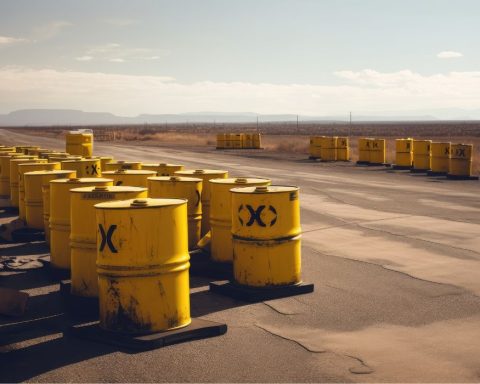Last April, negotiators from 175 nations met in Ottawa to hammer out the details of the world’s first global treaty to end plastic waste. That fourth of five rounds of negotiations ended indecisively, with no agreement on the contentious issue of imposing firm caps on plastic production. Hope percolated in August, when the Biden administration signalled that the United States, one of the world’s biggest plastic producers, would back a global target on plastic production.
Then in the weeks leading up to the final round of plastic treaty negotiations in Busan, South Korea, in November, that hope evaporated as the Biden administration backtracked on its promise and described reductions in plastic production as an aspirational “North Star” goal.
“I thought we were on the same page in terms of capping plastic and reducing production,” said Jo Banner, co-founder of The Descendants Project, a non-profit advocating for communities in Louisiana’s Cancer Alley. “But it was clear that we just weren’t,” she told Grist.
By the time global delegates met in Busan, the seeds of failure had already been sown. Even though a “high ambition” group of more than 100 countries supported production caps, oil-producing nations such as the United States, Russia, Saudi Arabia and China – aided by more than 200 lobbyists from petrochemical firms – ensured that the talks ended without the unanimous support the new treaty requires. Indeed, as time was running out, a Kuwaiti delegate was still arguing that “plastic has brought immense benefit to societies worldwide.”
In reality, the planet is contaminated with nearly indestructible plastics that leach toxic chemicals throughout the environment, where they taint the food chain and the water we drink. Microplastics are now found in newborn babies and mothers’ breast milk, with untold consequences for human health and reproduction. Worse, the Organisation for Economic Co-operation and Development says plastic production will triple by 2060 without production limits. Yet fossil fuel producers say that plastic pollution is really a problem of poor waste management – which ignores the fact that many plastics are too hard to break down and that after decades of effort, only 9% of global plastic is being recycled.
Canadians may be forgiven for growing tired of the extraction industries’ obstinacy. When the federal government set out to ban several single-use plastics in 2022, declaring that all “plastic manufactured items” may constitute a threat to public health, the petrochemical lobby sued Ottawa. The Federal Court of Canada agreed that the Liberal government had over-reached its authority, a decision the government is appealing.
It’s no secret why the oil lobby is fighting so hard. It knows electric vehicles are about to eclipse the internal combustion engine, so it’s desperate to expand its petrochemical business.
What comes next for plastic waste reduction?
The failure of Busan will lead to another meeting in 2025, but with a notably less receptive government in the White House environmental advocates are looking for leadership elsewhere. The more ambitious nations, for instance, may forge a pact outside the UN framework. As European Union environmental commissioner Jessika Roswall said after Busan, “The EU will remain firmly committed to finding a global solution. Our oceans, our environment and citizens around the globe need it.”
California launched a new tactic in September. It sued ExxonMobil for “deceiving the public to convince us that plastic recycling could solve the plastic waste and pollution crisis,” said Attorney General Rob Bonta. California based part of its claim on a recent study from the Center for Climate Integrity that found that the petrochemical industry has known since the 1980s that “recycling cannot be considered a permanent solid waste solution [to plastics], as it merely prolongs the time until an item is disposed of.”
As the Busan talks were breaking down, Australian mining executive Andrew Forrest doubled down on his lobbying for a lower-ambition tool: a tax on plastic production, to encourage manufacturers to embrace recycling and reuse. Proceeds from the tax, Forrest wrote, “can be used to build waste-management systems, assist waste workers to transition to new jobs, clean up past pollution, and fund critical human health research to build understanding of the harm from plastic chemicals.”
Indeed, Spain, the United Kingdom and other European countries have just recently introduced taxes on single-use plastics to discourage production. While the taxes are too new to have had tangible impact, they demonstrate the power of getting started – and could be catalysts for global action.


